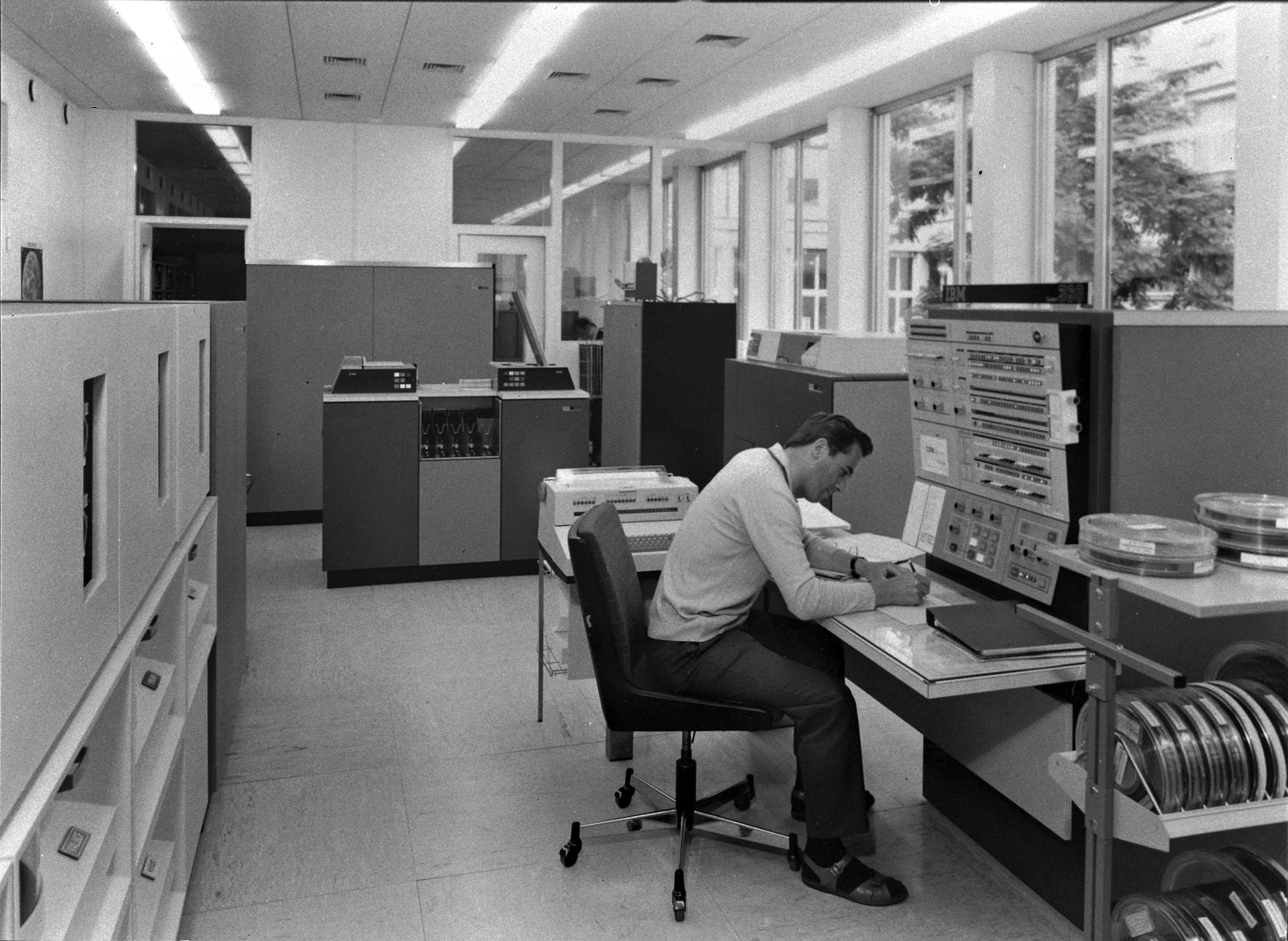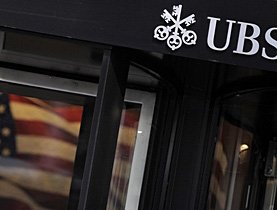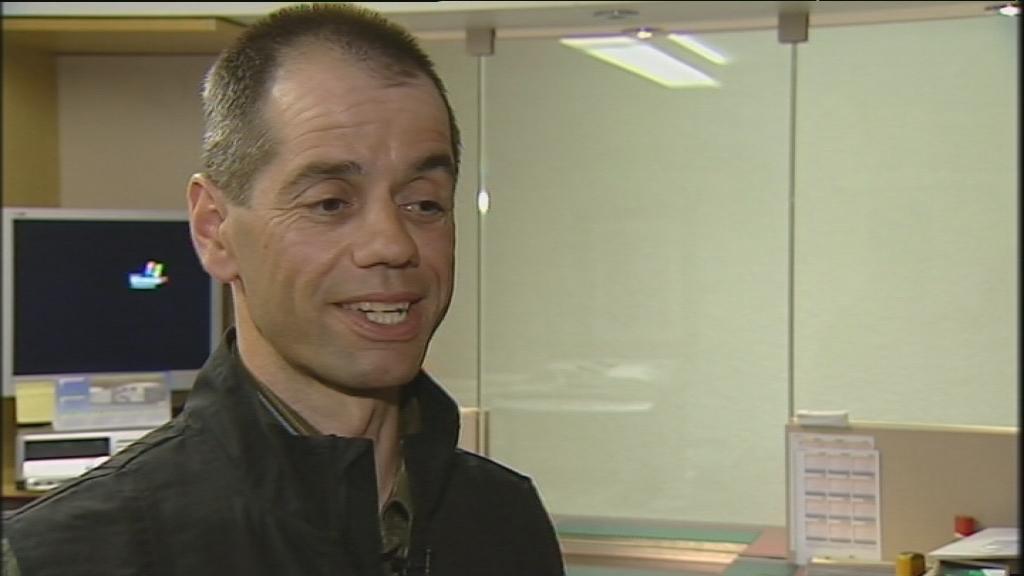“Banking sector should put its house in order”

Switzerland’s banking sector is in the middle of a storm and banks would be well advised to go to the roots of their problems, Swiss journalist Lukas Hässig says.
Hässig tells swissinfo.ch that Swiss bank UBS was mainly responsible for the fall of banking secrecy – in this context a multi-million dollar tax accord with the United States government and the handing over of client data.
In February 2009, UBS agreed to pay $780 million (SFr884.1 million) to avoid legal charges from Washington on criminal charges of aiding tax evasion. UBS also agreed to hand over data on about 250 of its US account holders.
In his book Paradies Perdu – The End of Swiss Banking Secrecy , Hässig also describes the close ties between UBS and those in power in Switzerland.
The Organisation for Economic Co-operation and Development as well as a number of European countries applied pressure on Switzerland in 2009 to abandon its differentiation between tax fraud and tax evasion.
swissinfo.ch: To what extent was UBS the main culprit in the collapse of banking secrecy?
Lukas Hässig: I lean towards the opinion that it really is at the centre of the whole affair. Of course other Swiss banks and the private ones had similar strategies. They went without a licence [to the US] and offered financial services. They should have gone to the Securities and Exchange Commission. But UBS was the biggest player.
swissinfo.ch: Your book also takes the Swiss government to task. Where, in your view, did it fail?
L.H.: They were sleeping and to some extent until recently they were a partner of the Swiss banks instead of keeping a healthy distance. Look at the people sitting in Bern. You have the chairman of the regulator (Eugen Haltiner of the Swiss Financial Market Supervisory Authority) who used to be a big UBS manager. Look at the finance minister (Hans-Rudolf Merz) who was also at one point in his career on the payroll of UBS. UBS is a whole system. It’s not only one player in the industry or in the economy of Switzerland. The chief executive of the Swiss Bankers Association (Urs Roth) comes from the bank, so UBS managed to put their people in crucial places.
That Switzerland accepted this connection between the country and UBS was one big mistake.
swissinfo.ch: The Blick tabloid had a headline saying: UBS = Switzerland. To what extent were potential dangers to UBS, whether from being forced to split up by the US authorities or even collapse, also a threat to Switzerland? Did UBS equal Switzerland?
L.H.: It’s hard to say. I think the Swiss government was convinced that the danger was real. I’m not blaming the Swiss government for helping UBS at the most crucial moment of the crisis.
I think it did its best. But after [the collapse of] Lehman Brothers in 2008, it was quite impossible to let another big financial company go bankrupt. I would have argued that some poker game would have been possible. When the Swiss government had to decide in January/February 2009 whether it should give up Swiss banking secrecy by handing about 300 client data to the US, otherwise US would indict UBS as a criminal organisation, it didn’t think hard enough about whether the US would really have indicted UBS. But, of course, I see that it’s hard to play poker with the US.
swissinfo.ch: How far would you say that UBS was let off the hook?
L.H.: Very far. They had to pay a fine of $780 million. They had to exit the US offshore business. They had to say that they made mistakes. They changed the management team completely but on the other hand they can keep on going. We in Switzerland – the politicians and the people – have to adapt to a new world without banking secrecy. It’s a big problem for the Geneva and Zurich private banks but the big banks can just go on. They have such big pockets… For me, there is one winner and many losers in this drama and the one winner is UBS.
swissinfo.ch: One part of your book could almost be comical if it weren’t so serious. I’m thinking about UBS client advisers and their laptops with dual purposes when they travelled to the US. What was going on exactly?
L.H.: It’s a juicy detail. You remember Q in the James Bond films? He had a place where he was developing secret weapons and in UBS you had a similar system. A special IT force prepared laptops for the client advisers a couple of days before they went to the US or to some other markets and there was a hidden system built in so that they could go through the internet and download client data. That was dangerous because if the client data fell into the hands of the US government, the bank would have lost everything. It built a secret self-destructing mechanism inside with the command: xtas for “delete travel access service” and this would delete the hidden system on the disk.
swissinfo.ch: Where does Swiss banking go from here with a lot of pressure on the Swiss to accept an automatic exchange of information on tax matters?
L.H.: If you are in a crisis, either you are desperate or you see it as an opportunity. The old management saying that turning a crisis situation into opportunities is appropriate now. Switzerland has its qualities. We still have a strong political situation, we still have the Swiss franc, we have good education, good infrastructure, we have a financial system with a stock exchange and IT and people who know their business. Let’s use it, but with equal rights when it comes to competition.
We don’t need hidden or black money or tax evasion just to beat the others. We should be strong enough to say we can compete without these tricks.
swissinfo.ch: You’re obviously not a friend of the banking industry, it sounds. So what has been the sector’s reaction?
L.H.: I don’t know whether I’m a friend or not. I’m a journalist and the most important thing is having a critical distance to the object you are writing about.
I think this book about how Switzerland lost its banking secrecy is difficult for some bankers to accept because it’s the end of the good times. It was easy to make a lot of money, not only for the banks but also for the client advisers, the bankers who received big bonus packages without being better than the foreign competitors.
Of course some other countries also use tax evasion instruments but we should have the self-confidence to look ahead and say that this is a new world. It’s not about tax evasion, it’s about being competent and a good competitor in the marketplace.
Robert Brookes, swissinfo.ch
US tax authorities want data on up to 4,450 UBS accounts held by wealthy US citizens. The deal has to be approved by the Swiss parliament.
Cabinet ministers, in particular Foreign Minister Micheline Calmy-Rey and Finance Minister Hans-Rudolf Merz, have warned that rejection would have serious negative consequences in Swiss-US relations.
The Swiss National Bank came in with a rescue package for UBS in October 2008.
The House of Representatives and the Senate are to decide whether there should be a parliamentary investigation into the handling of the financial crisis.
Parliament is also to discuss a controversial double taxation accord with Washington.
Swiss banking secrecy transformed Switzerland’s financial industry into a leader in offshore banking. Once thought as a safe haven for the fortunes of refuges as much as fallen political leaders, Swiss banking secrecy had become the core of a tax evasion machine that brought enormous wealth to Swiss banks and their homeland.
Hardly anyone anticipated its sudden death when a top manager of Swiss financial giant UBS was detained in Spring 2008 by US authorities that marked the start of an intense raid against the small Alpine country.
The book Paradies Perdu – The End of Swiss Banking Secrecy recalls in detail the astonishing UBS system – how it worked and its consequences
Hässig says the book is at the same time a thriller with many new details and offers a precise analysis of an era that has now come to an end.
Since June 2006: Freelance journalist, specialising in finance and economics issues.
Jan 2004 – May 2006: Economics author at the Weltwoche weekly of Zurich and business magazine Bilanz.
Oct 2001 – Dec 2003: Head of economic section at Swiss news magazine Facts.
Jan 1999 – Aug 2001: Head of corporate communications at Zurich Airport.
April 1995 – Dec 1998: Economics editor at SonntagsZeitung in Zurich.
May 1994 – March 1995: Financial editor at Finanz und Wirtschaft, Zurich.
Jan 1991 – April 1993: Radio reporter at Radio 24, Zurich.

In compliance with the JTI standards
More: SWI swissinfo.ch certified by the Journalism Trust Initiative




You can find an overview of ongoing debates with our journalists here. Please join us!
If you want to start a conversation about a topic raised in this article or want to report factual errors, email us at english@swissinfo.ch.